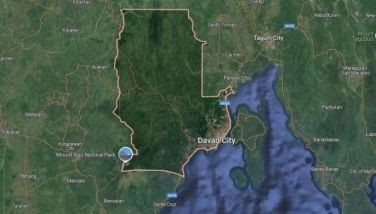DTI asks NEDA to conduct review of cement industr
September 6, 2001 | 12:00am
The Department of Trade and Industry (DTI) has asked the National Economic and Development Authority (NEDA) to conduct an "econometric" review of the cement industry to determine whether it is possible for a cartel to exist in the local market.
"This is a complex issue. We have to ask the NEDA to study if, from a statistics and economics point of view, it could be proven that there are cartel-like activities in the market," Trade and Industry Secretary Manuel Roxas II said yesterday.
The cement industry, in the hot seat for allegations of cartel-like behavior, has been fending off accusations that the players have been conniving to manipulate domestic prices to avoid further declines as domestic demand continues to drop.
Last year, NEDA conducted a similar study and concluded that there was not enough evidence to establish that the industry was behaving like a cartel.
The persistent charges against the cement industry stemmed from import controls imposed by the government at the time when there was a supply shortage.
In a related development, the House committee on trade and industry has not yet reached any decision nor any consensus on pending resolutions calling for a Congressional inquiry into the plight of the local cement industry, committee chairman Manila Rep. Harry Angping said yesterday.
"No, we have not formed any consensus or made a decision. We have just opened the inquiry with last week’s initial hearing, " Angping said.
Angping was commenting on reports quoting Albay Rep. Joey Salceda, a committee member, as saying the investigating panel was inclined to recommend denial of government protection for the local industry through higher tariff for foreign cement manufacturers.
"This was just his personal opinion," he said referring to Salceda’s statement.
Philippine Cement Manufacturers’ Corp. (Philcemcor) spokesperson Susan D. Villanueva also refuted Salceda’s claim that the cement industry enjoyed P1 billion in operating profits as of 2000, but that it was the interest charges on debts incurred to expand and modernize the industry that triggered the huge losses now being incurred by local cement manufacturers.
She pointed out that there is indeed a direct link between the surge in cement imports and the P5.2 billion net loss incurred by the cement industry in 2000.
"This is a complex issue. We have to ask the NEDA to study if, from a statistics and economics point of view, it could be proven that there are cartel-like activities in the market," Trade and Industry Secretary Manuel Roxas II said yesterday.
The cement industry, in the hot seat for allegations of cartel-like behavior, has been fending off accusations that the players have been conniving to manipulate domestic prices to avoid further declines as domestic demand continues to drop.
Last year, NEDA conducted a similar study and concluded that there was not enough evidence to establish that the industry was behaving like a cartel.
The persistent charges against the cement industry stemmed from import controls imposed by the government at the time when there was a supply shortage.
In a related development, the House committee on trade and industry has not yet reached any decision nor any consensus on pending resolutions calling for a Congressional inquiry into the plight of the local cement industry, committee chairman Manila Rep. Harry Angping said yesterday.
"No, we have not formed any consensus or made a decision. We have just opened the inquiry with last week’s initial hearing, " Angping said.
Angping was commenting on reports quoting Albay Rep. Joey Salceda, a committee member, as saying the investigating panel was inclined to recommend denial of government protection for the local industry through higher tariff for foreign cement manufacturers.
"This was just his personal opinion," he said referring to Salceda’s statement.
Philippine Cement Manufacturers’ Corp. (Philcemcor) spokesperson Susan D. Villanueva also refuted Salceda’s claim that the cement industry enjoyed P1 billion in operating profits as of 2000, but that it was the interest charges on debts incurred to expand and modernize the industry that triggered the huge losses now being incurred by local cement manufacturers.
She pointed out that there is indeed a direct link between the surge in cement imports and the P5.2 billion net loss incurred by the cement industry in 2000.
BrandSpace Articles
<
>
- Latest
- Trending
Trending
Latest
Trending
Latest
Recommended





























